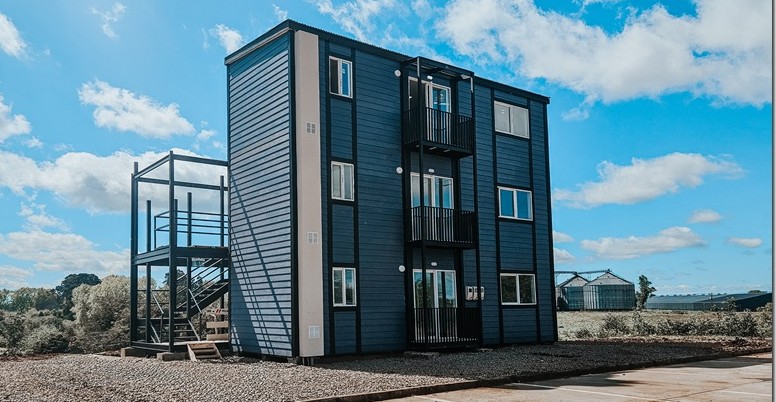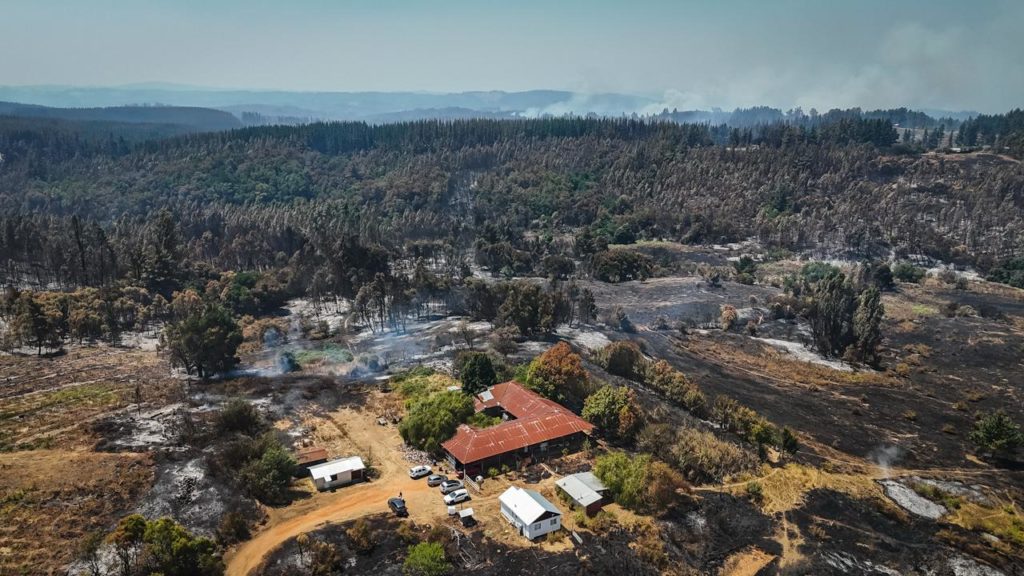A significant advancement in innovation and sustainability was achieved in La Araucanía with the inauguration of the ECOIMAD Building, the first prototype of modular social housing in height constructed entirely from wood. The initiative, driven by the Construye Zero program of the Technological Center for Innovation in Construction (CTEC) and co-financed by CORFO, aims to establish a new standard for sustainable, replicable, and scalable housing development throughout Chile.
The project, led by Canada House, represents a concrete example of the potential that the industrialization of wood construction has to address the country's housing deficit. The three-story building, configured as a small condominium, has 180 built square meters, distributed into three apartments of 60 m² each, with a structure entirely made from nationally sourced wood.
Efficiency and Sustainability in Record Time
One of the main achievements of the project is its construction speed. The building was entirely produced in a plant in just six weeks, and subsequently assembled on-site in eight hours, demonstrating the efficiency and precision of the industrialized modular system.
According to CTEC data, this method allowed for a reduction in construction times by over 60%, and generated only 30 m³ of total waste, equivalent to 5 m³ per week, a figure significantly lower than the average of a traditional construction project. This not only improves productivity but also reduces the environmental footprint of the construction process.
For Daniela Vásquez, manager of the CTEC Construye Zero program, the ECOIMAD project "demonstrates that it is possible to build safely, efficiently, and sustainably, providing a concrete alternative for the future of social housing in Chile." The executive added that innovation in wood "not only raises habitability standards but also transforms productivity and reduces the environmental impact of the sector."
Technology to Address Climate Challenges
The design of the ECOIMAD Building also responds to the challenges posed by climate change and the risk of forest fires, particularly in the southern regions of the country. Its construction system incorporates treatments and solutions that increase fire resistance from the exterior to the interior, exceeding current regulatory standards.
"This type of project shows that wood construction can be synonymous with safety, sustainability, and modernity. From La Araucanía, we are driving a paradigm shift, demonstrating that it is possible to build sustainable homes with a low carbon footprint and minimal waste," emphasized Eduardo Figueroa, regional director of CORFO La Araucanía.
A Replicable Model for the Future of Social Housing
The ECOIMAD Building is part of the national Construye Zero strategy, an initiative seeking to accelerate the transition towards carbon-neutral, efficient, and sustainable construction. Its focus aims to promote the adoption of clean technologies, resource optimization, and the integration of renewable materials, especially wood, as a structural and aesthetic core.
For Canada House, a leading company in wood construction solutions, the project marks a turning point. "ECOIMAD represents the result of years of work in technological innovation, design, and sustainability. It is a demonstration that social housing can be built with high standards, reduced timelines, and low environmental impact," stated the company.
The challenge now is to replicate and scale the model in other regions of the country, especially in those where wood is part of the natural and cultural environment. With this, the aim is not only to contribute to housing access but also to strengthen local development, generate green jobs, and invigorate the Chilean forestry industry under sustainability criteria.







Comments (0)
No comments yet. Be the first to comment!
Leave a comment